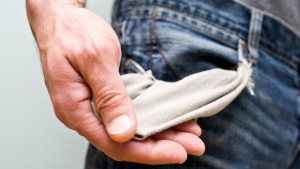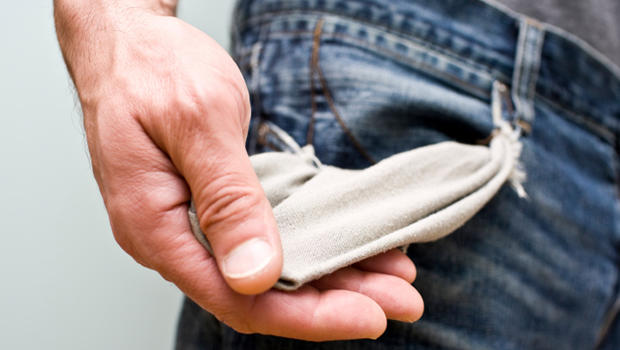
They are instant millionaires. Athletes earn more and faster money than King Midas on a lucky streak in Vegas. According to this infographic, Kobe Bryant earns more with two field goals than the average American earns all year. When it comes to raking in the dough, the real ballers are basketballers. Their career earning clock in at about $24.7M.
TheRichest tells us, “In 2008, the NBA Players’ Association claimed that 60 percent of pro basketball players go broke within five years of retirement.” They go on to say that it is easy to see how this happens. But I disagree. To those barely scraping by, it is very difficult to see how this could happen. If you started earning $50,000 a year a age 20, and earned that every year until you were 80, you will have earned a lifetime total of $3M. Since most of us don’t earn anything like that for so long, it is hard to imagine what problems $24.7M over less than 5 years won’t solve. No one is immune to poor financial decisions that leave them drowning in debt. It can be hard to reach out for help in the form of secured loans to consolidate the debt but this is often a suitable manner in which you can overcome this predicament.
When you really think about it, there are some very good reasons why this happens. Having a great deal of money does not guarantee one will keep it. Lexington Law states that bankruptcy “is a fiscal malady of pandemic proportions…” They go on to provide details about where, and among who this pandemic strikes the hardest.
While poorer regions suffer the worst, they did say that, “no economic segment of the country seems immune to bankruptcy. Even above the average income marker, bankruptcies appear at per capita rates similar to the average overall.” There are few lessons to learn from when the poor get poorer. However, it is instructive when it happens to the very rich, especially athletes. Here are three of those lessons:
Money Does Not Change You
Whatever person you are when broke, is who you will be when you are wealthy. In the history of the world, there are no reports of money transforming bad people into good people. Just Ask Michael Vick: the $200M man. He filed bankruptcy from prison. Vick was caught running an elaborate dog-fighting business. That property is now a haven of rescued dogs. Make no mistake about it: Money did not turn Vick into a lowlife. Money does not change a person. It merely enables them to fully be what they really are.
Don’t Spend Based on What You Can Afford
It is time to throw affordability out as a metric for responsible spending, at least, as it applies to debt. What you can afford today might be very different than what you can afford tomorrow. It might be also be beneficial to get your spending habits under control before it becomes a problem for you in later life, considering even those in retirement can’t resist a credit card and potentially digging themselves into more debt they might not ever be able to clear. Buying a car or house, today, based on what you can afford, will leave you bankrupt tomorrow if you suffer an injury, divorce, or some other calamity that snuffs out half your income. If that ends up being the case, getting information from Smith, Gilliam, Williams & Miles, or a similar law firm, can help immensely. Meanwhile, athletes go into the business thinking they will play for 20 years. The truth ends up being closer to 3 or 4. Taking on a lifetime of debt will leave you broke when the money stops flowing in four years. Wealthy individuals will often buy opulent homes (multiple, in some cases), fast cars, and other items out of the grasp of the majority. Therefore, finding insurance for high networth individuals becomes somewhat of a necessity for people in this situation looking to protect their assets from theft and damage, which could prove costly if not covered.
Injuries Can Make a Pauper out of Any of Us
No one plans to be injured. It happens to the healthiest, best, and brightest of us. Whether you are a world-class athlete, or a middling office worker, serious injury is always unexpected and devastating. Just ask Tony Conigliaro: The Red Sox slugger swinging pine when Shatner and Nimoy were still trekking through the stars. Around the time Kirk was having trouble with Tribbles, Conigliaro took a pitch just beneath his eye socket, effectively ending his promising career.
The fact is, no career is promised to any of us. RSI and carpal tunnel surgery can be just as devastating to a keyboard jockey as an ACL rip to a runner. There are no construction workers in wheelchairs. The bottom line is that, like athletes, we have to take care of ourselves. Unlike athletes, we also need to have a plan in the event of injury.
There are many reasons why wealthy athletes go broke. Surprisingly, they are mostly the same reasons anyone else does. Fortunately, the same financial basics that work for them, also work for us.
